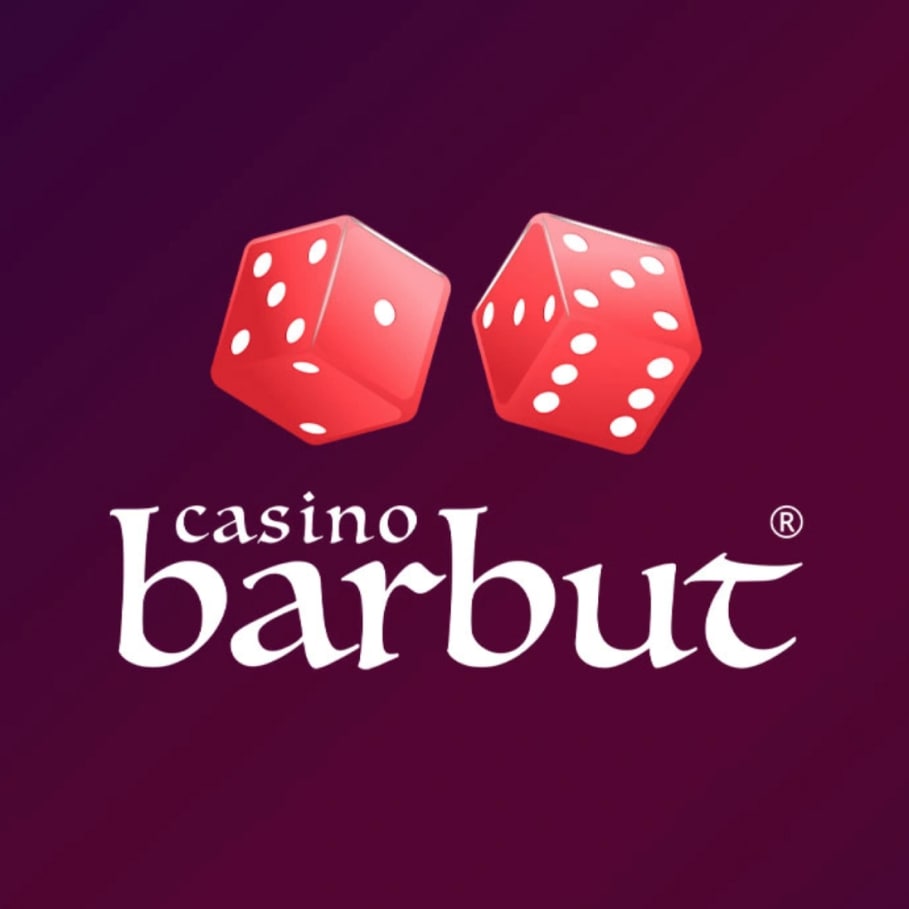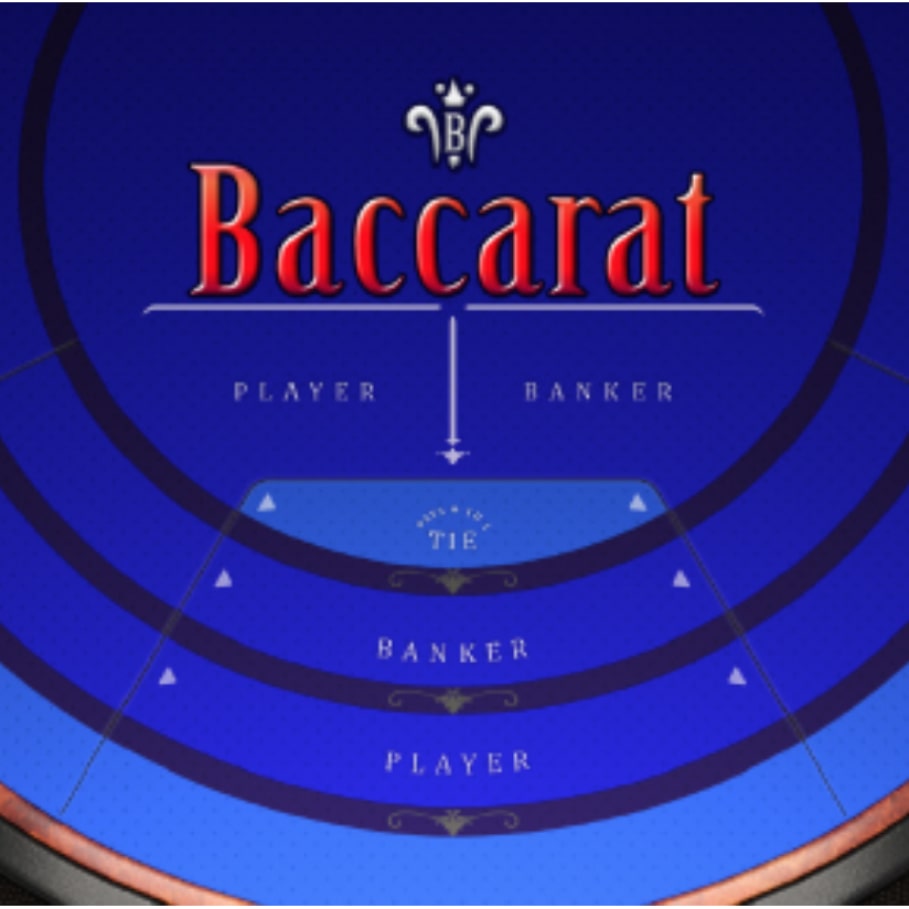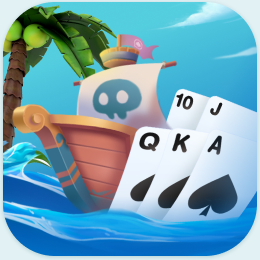Texas Holdem Starting Hands Chart and Guide Ignition Casino
Master Texas Hold’em starting hands and find out when you have the best chance to win! Check the chart with the best starting cards at Ignition Casino
Everyone wants to know how to be a great poker player. Striving for greatness on the felt is admirable, but here’s a dirty little secret not everyone will tell you: Poker doesn’t work that way. Great athletes or performers might get paid a whole lot more than good ones, but at the poker table, the rewards are handed out differently. Most of the money comes from executing basic, fundamental plays against people who make predictable mistakes. Want some of that money? Ask how to be good at poker first.
The answer to that question is simple: Don’t be the one making predictable mistakes. In poker, as in life, it’s much more important to avoid doing something wrong than it is to do it right – especially when people can’t seem to agree what “right” is. This guide will show you the eight biggest mistakes beginners make in poker. Eliminate these mistakes from your game, take advantage of people who haven’t figured it out yet, and you’ll be one of the good players at the table. Greatness comes later.
Download Poker
Poker Tournament
Poker Strategy Articles
Learn How to Play Poker
What Is a Fish in Poker?
If you find a mistake-prone player at your online poker game, congratulations: You’ve found the fish. Anyone who isn’t particularly good at poker can be labeled a fish, but use this term very carefully. Fishiness is relative; everyone makes mistakes in poker, even the great players. As they say, if you’re the ninth-best poker player in the world, but you’re sitting at the same table as the top eight, you’re the fish.
Having said that, the very worst players do tend to make those same mistakes over and over again. They also take longer to learn the error of their ways. Fish like these are a vital part of the poker food chain; if you’re really lucky, you might even play against a whale who has all the money in the world and doesn’t mind losing some of it playing poker. Treat these people like gold. Never criticize the way they play or make them feel unwelcome at your table. Don’t tap the tank, in other words.
How to Be a Great Poker Player (or, Don’t Be a Fish)
Okay, so you still want to be a great player, you need to know your poker strategy. Maybe you’ve heard about game-theory optimal (GTO) poker and how all the big names are using it to crush their opponents. Let’s assume that you’ve got the work ethic and the time to learn GTO poker. That’s all fine and dandy, but unless you’re at a table with other GTO wizards, the best way to play poker is still the same: Find the fish and exploit them. The truly great players are the ones who do this the best – while not slipping up and making the same mistakes themselves.
8 Mistakes Fish Make on the Felt
Now we come to the most important poker tips for beginners (read our Beginner Guide to Poker). The following eight mistakes are the ones that keep coming up at the poker table, and they come up more often as the stakes get lower. Identify the players who repeatedly make these errors, then take advantage by putting them in the same situation as often as possible, and employing the right counter-measures. Meanwhile, chances are you’ll have at least one of these leaks in your game, so make sure to detect those leaks and plug them as quickly as possible before sailing into battle.
Mistake #1: Playing Too Many Hands
This is easily the biggest mistake fish make in poker. Folding is the least fun of all the moves you can make, but it’s also the right one more often than not. Fish want to get in the game; instead of waiting for good poker hands to bet on, they’ll enter the pot with too many marginal hands, or even a pair of napkins – just so they can get some action. Don’t be one of these players. Develop solid starting ranges for the poker variant you’re playing (Texas Hold’em, Omaha and Omaha Hi/Lo are all available at Ignition), and fold the rest like a boss.
Mistake #2: Not Folding Ace-Rags
Here’s a specific subset of Mistake #1. The Ace is the most important card in poker since it’s the highest-ranking card – and the lowest card, too. But having an Ace in your hand isn’t always enough. If you’re playing Hold’em and you’re in early position with an Ace and an unsuited small card (also known as a rag), that’s not a strong enough hand to open with. It’s also not strong enough to call with from the big blind against an early-position raiser. The chances of you running into an Ace with a better kicker are just too great.
Mistake #3: Never Raising Pre-Flop
Not only do fish like to play too many hands, they also limp into nearly every single pot they enter. This is a great way to light money on fire. When you open-raise, you give your opponents the opportunity to fold and let you win the pot uncontested – easily the best way to win a pot. Limping in simply ensures that you’ll have to see a flop if you want to win, and post-flop play is a lot more complicated than pre-flop.
Mistake #4: Chasing Straights/Flushes (When Pot Odds Aren’t in Their Favor)
More often than not, you’ll have a draw rather than a made hand when you reach the flop. It’s tempting to call down and try to complete that draw. Sometimes it’s the right play, but fish do this way too often. If you have a gutshot on the flop in Hold’em, you only have about a 17% chance of making your straight by the river. If you have a flush draw on the turn, your chances of making that flush are a shade under 20%. Take advantage of fish who chase their draws by making big continuation bets that give them horrible pot odds to continue.
Mistake #5: Weird Bet Sizes
Bet sizing is one of the trickier aspects of poker. In theory, any bet size (within the rules) can be used at any time, but fish don’t put a lot of thought into this. They’ll often make unusually small bets, including min-bets, giving you the pot odds to continue with your draws. They may also telegraph the strength of their holdings by making unusually large bets with made hands. If you find one of these players, be prepared to fold when they bet big.
Mistake #6: Not Paying Attention to Position
Because fish tend to limp in and play too many hands, they often find themselves out of position post-flop, which is hardly ideal. Getting to act last is usually a big advantage in poker. When you’ve got a big made hand on the flop, and your opponent is someone who likes to bet out a lot, you can trap them by calling one or even two streets before putting in that big raise. Conversely, when you’ve got complete trash and you’re facing a passive opponent who check-folds a lot, you can bluff that fish and take the pot away.
Mistake #7: Post-Flop Leaks
This is more of a catch-all category than a specific mistake, but it’s incredibly important when you’re dealing with fish to put them in as many difficult post-flop spots as possible – difficult for the fish, that is. One way to do this is to over-limp with suited connectors and weaker suited Broadway hands that you may have raised otherwise, just to keep your fishy target from folding pre-flop. Don’t overdo this, though; for the most part, you’d rather isolate your fish with a pre-flop raise than get involved in a multi-way pot.
Mistake #8: Tilt
Unless your name is Claudius or Libratus, your emotions probably get the better of you from time to time. Fish have very poor tilt control. They don’t approach poker with the right mental framework, and when things don’t go according to their expectations, they’re prone to making even bigger mistakes than usual – like punting off their entire stack with a loose call. Again, never make fun of a fish who’s on tilt. You want to keep these players in the game, not chase them away from the table.
There are many more mistakes that fish make at poker, each with its own counter-attack, but if you start by recognizing the eight mistakes on this list, you can learn to deal with the vast majority of players you’ll run into. Don’t forget to put your own game under the microscope and see if you’ve been making these fishy mistakes, too. And again, don’t overuse the “fish” label when you profile your opponents. Just because someone makes a mistake, that doesn’t necessarily mean they aren’t bright enough to realize, learn from it, and turn the tables on you.
READ MORE POKER STRATEGY
If you find a mistake-prone player at your online poker game, congratulations: You’ve found the fish. Anyone who isn’t particularly good at poker can be labeled a fish, but use this term very carefully. Fishiness is relative; everyone makes mistakes in poker, even the great players. As they say, if you’re the ninth-best poker player in the world, but you’re sitting at the same table as the top eight, you’re the fish.
Having said that, the very worst players do tend to make those same mistakes over and over again. They also take longer to learn the error of their ways. Fish like these are a vital part of the poker food chain; if you’re really lucky, you might even play against a whale who has all the money in the world and doesn’t mind losing some of it playing poker. Treat these people like gold. Never criticize the way they play or make them feel unwelcome at your table. Don’t tap the tank, in other words.
How to Be a Great Poker Player (or, Don’t Be a Fish)
Okay, so you still want to be a great player, you need to know your poker strategy. Maybe you’ve heard about game-theory optimal (GTO) poker and how all the big names are using it to crush their opponents. Let’s assume that you’ve got the work ethic and the time to learn GTO poker. That’s all fine and dandy, but unless you’re at a table with other GTO wizards, the best way to play poker is still the same: Find the fish and exploit them. The truly great players are the ones who do this the best – while not slipping up and making the same mistakes themselves.
8 Mistakes Fish Make on the Felt
Now we come to the most important poker tips for beginners (read our Beginner Guide to Poker). The following eight mistakes are the ones that keep coming up at the poker table, and they come up more often as the stakes get lower. Identify the players who repeatedly make these errors, then take advantage by putting them in the same situation as often as possible, and employing the right counter-measures. Meanwhile, chances are you’ll have at least one of these leaks in your game, so make sure to detect those leaks and plug them as quickly as possible before sailing into battle.
Mistake #1: Playing Too Many Hands
This is easily the biggest mistake fish make in poker. Folding is the least fun of all the moves you can make, but it’s also the right one more often than not. Fish want to get in the game; instead of waiting for good poker hands to bet on, they’ll enter the pot with too many marginal hands, or even a pair of napkins – just so they can get some action. Don’t be one of these players. Develop solid starting ranges for the poker variant you’re playing (Texas Hold’em, Omaha and Omaha Hi/Lo are all available at Ignition), and fold the rest like a boss.
This is easily the biggest mistake fish make in poker. Folding is the least fun of all the moves you can make, but it’s also the right one more often than not. Fish want to get in the game; instead of waiting for good poker hands to bet on, they’ll enter the pot with too many marginal hands, or even a pair of napkins – just so they can get some action. Don’t be one of these players. Develop solid starting ranges for the poker variant you’re playing (Texas Hold’em, Omaha and Omaha Hi/Lo are all available at Ignition), and fold the rest like a boss.
Mistake #2: Not Folding Ace-Rags
Here’s a specific subset of Mistake #1. The Ace is the most important card in poker since it’s the highest-ranking card – and the lowest card, too. But having an Ace in your hand isn’t always enough. If you’re playing Hold’em and you’re in early position with an Ace and an unsuited small card (also known as a rag), that’s not a strong enough hand to open with. It’s also not strong enough to call with from the big blind against an early-position raiser. The chances of you running into an Ace with a better kicker are just too great.
Here’s a specific subset of Mistake #1. The Ace is the most important card in poker since it’s the highest-ranking card – and the lowest card, too. But having an Ace in your hand isn’t always enough. If you’re playing Hold’em and you’re in early position with an Ace and an unsuited small card (also known as a rag), that’s not a strong enough hand to open with. It’s also not strong enough to call with from the big blind against an early-position raiser. The chances of you running into an Ace with a better kicker are just too great.
Mistake #3: Never Raising Pre-Flop
Not only do fish like to play too many hands, they also limp into nearly every single pot they enter. This is a great way to light money on fire. When you open-raise, you give your opponents the opportunity to fold and let you win the pot uncontested – easily the best way to win a pot. Limping in simply ensures that you’ll have to see a flop if you want to win, and post-flop play is a lot more complicated than pre-flop.
Not only do fish like to play too many hands, they also limp into nearly every single pot they enter. This is a great way to light money on fire. When you open-raise, you give your opponents the opportunity to fold and let you win the pot uncontested – easily the best way to win a pot. Limping in simply ensures that you’ll have to see a flop if you want to win, and post-flop play is a lot more complicated than pre-flop.
Mistake #4: Chasing Straights/Flushes (When Pot Odds Aren’t in Their Favor)
More often than not, you’ll have a draw rather than a made hand when you reach the flop. It’s tempting to call down and try to complete that draw. Sometimes it’s the right play, but fish do this way too often. If you have a gutshot on the flop in Hold’em, you only have about a 17% chance of making your straight by the river. If you have a flush draw on the turn, your chances of making that flush are a shade under 20%. Take advantage of fish who chase their draws by making big continuation bets that give them horrible pot odds to continue.
More often than not, you’ll have a draw rather than a made hand when you reach the flop. It’s tempting to call down and try to complete that draw. Sometimes it’s the right play, but fish do this way too often. If you have a gutshot on the flop in Hold’em, you only have about a 17% chance of making your straight by the river. If you have a flush draw on the turn, your chances of making that flush are a shade under 20%. Take advantage of fish who chase their draws by making big continuation bets that give them horrible pot odds to continue.
Mistake #5: Weird Bet Sizes
Bet sizing is one of the trickier aspects of poker. In theory, any bet size (within the rules) can be used at any time, but fish don’t put a lot of thought into this. They’ll often make unusually small bets, including min-bets, giving you the pot odds to continue with your draws. They may also telegraph the strength of their holdings by making unusually large bets with made hands. If you find one of these players, be prepared to fold when they bet big.
Bet sizing is one of the trickier aspects of poker. In theory, any bet size (within the rules) can be used at any time, but fish don’t put a lot of thought into this. They’ll often make unusually small bets, including min-bets, giving you the pot odds to continue with your draws. They may also telegraph the strength of their holdings by making unusually large bets with made hands. If you find one of these players, be prepared to fold when they bet big.
Mistake #6: Not Paying Attention to Position
Because fish tend to limp in and play too many hands, they often find themselves out of position post-flop, which is hardly ideal. Getting to act last is usually a big advantage in poker. When you’ve got a big made hand on the flop, and your opponent is someone who likes to bet out a lot, you can trap them by calling one or even two streets before putting in that big raise. Conversely, when you’ve got complete trash and you’re facing a passive opponent who check-folds a lot, you can bluff that fish and take the pot away.
Because fish tend to limp in and play too many hands, they often find themselves out of position post-flop, which is hardly ideal. Getting to act last is usually a big advantage in poker. When you’ve got a big made hand on the flop, and your opponent is someone who likes to bet out a lot, you can trap them by calling one or even two streets before putting in that big raise. Conversely, when you’ve got complete trash and you’re facing a passive opponent who check-folds a lot, you can bluff that fish and take the pot away.
Mistake #7: Post-Flop Leaks
This is more of a catch-all category than a specific mistake, but it’s incredibly important when you’re dealing with fish to put them in as many difficult post-flop spots as possible – difficult for the fish, that is. One way to do this is to over-limp with suited connectors and weaker suited Broadway hands that you may have raised otherwise, just to keep your fishy target from folding pre-flop. Don’t overdo this, though; for the most part, you’d rather isolate your fish with a pre-flop raise than get involved in a multi-way pot.
This is more of a catch-all category than a specific mistake, but it’s incredibly important when you’re dealing with fish to put them in as many difficult post-flop spots as possible – difficult for the fish, that is. One way to do this is to over-limp with suited connectors and weaker suited Broadway hands that you may have raised otherwise, just to keep your fishy target from folding pre-flop. Don’t overdo this, though; for the most part, you’d rather isolate your fish with a pre-flop raise than get involved in a multi-way pot.
Mistake #8: Tilt
Unless your name is Claudius or Libratus, your emotions probably get the better of you from time to time. Fish have very poor tilt control. They don’t approach poker with the right mental framework, and when things don’t go according to their expectations, they’re prone to making even bigger mistakes than usual – like punting off their entire stack with a loose call. Again, never make fun of a fish who’s on tilt. You want to keep these players in the game, not chase them away from the table.
Unless your name is Claudius or Libratus, your emotions probably get the better of you from time to time. Fish have very poor tilt control. They don’t approach poker with the right mental framework, and when things don’t go according to their expectations, they’re prone to making even bigger mistakes than usual – like punting off their entire stack with a loose call. Again, never make fun of a fish who’s on tilt. You want to keep these players in the game, not chase them away from the table.
There are many more mistakes that fish make at poker, each with its own counter-attack, but if you start by recognizing the eight mistakes on this list, you can learn to deal with the vast majority of players you’ll run into. Don’t forget to put your own game under the microscope and see if you’ve been making these fishy mistakes, too. And again, don’t overuse the “fish” label when you profile your opponents. Just because someone makes a mistake, that doesn’t necessarily mean they aren’t bright enough to realize, learn from it, and turn the tables on you.
READ MORE POKER STRATEGY
FAQ
How to win at tournament poker?
The best approach is to play a tight range of strong and/or playable hands, and you need to play those hands aggressively. Playing all of your hands aggressively, including the more speculative ones like 7♠ 6♠ or 5♥ 5♣, allows you to disguise the strength of your actual hand.
How to win against fish poker?
By attempting to bluff them off of their hand you will simply lose much more money than you should have and also manage to tilt yourself even more! The correct and most profitable strategy versus the fish who doesn’t fold anything is to value bet the living crap out of them. And then value bet them some more!
What were the original rules and betting options for roulette?
What were the original rules and betting options for roulette? The original rules and betting options for roulette were relatively simple. The game featured a spinning wheel with numbered pockets, typically ranging from 1 to 36. The early versions of the game also featured a single zero pocket, which gave the house a slight edge. In some variations, there was also a double zero pocket, which further increased the house edge.
How do I deposit using Neteller on WPT Global?
How do I deposit using Neteller on WPT Global? To deposit using Neteller, create and verify an account with them. You can then add funds to your Neteller eWallet using a variety of methods. To deposit on WPT Global, log in to your Player Account and go to the Cashier. Click ‘Deposit’ and choose Neteller from the options available. Follow the on-screen instructions to make your deposit.
How to Deposit Cryptocurrency on WPT Global?
Comment effectuer un dépôt en crypto-monnaie sur WPT Global ? Pour effectuer un dépôt en crypto-monnaie, vous devez disposer d’un portefeuille de crypto-monnaies contenant des pièces. Connectez-vous à votre compte de joueur WPT Global et accédez à la caisse. Cliquez sur « Dépôt » et choisissez « Cryptotraitement » parmi les options disponibles. Sélectionnez la devise avec laquelle vous souhaitez effectuer le dépôt et saisissez le montant souhaité en USD. À l’étape suivante, une adresse unique vous sera attribuée pour envoyer la crypto-monnaie.
FishPoker – 集各種玩法於一身全新撲克平台! 這裡有多種經典和刺激的遊戲種類:NLH、Flash、SpinUp、AoF 以及PLO,不僅如此,還提供大菠蘿和十三張等遊戲模式。
This site only collects related articles. Viewing the original, please copy and open the following link:Texas Holdem Starting Hands Chart and Guide Ignition Casino































































































































































































